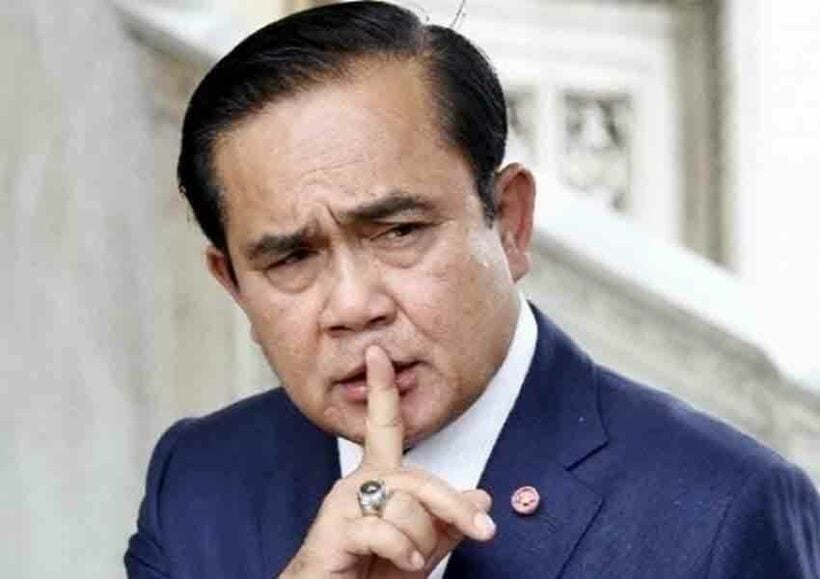Nida Poll: PM Prayut shouldn’t take over PPRP or form new party

A new Nida Poll about the recent shakeups in the government with PM Prayut Chan-o-cha and 5 cabinet members defeating a vote of no confidence shows that only 16% of people believe that the Prime Minister should become the new leader of the Palang Pratharath Party, while many feel it’s time for him to move aside and make way for new leaders to emerge.
The poll was conducted between September 13 and 16 with 1,317 respondents answering questions by phone. Those surveyed were over the age of 18 and located throughout the country and represented a range of all jobs and levels of education.
The poll was conducted as cracks have emerged between PM Prayut, the ruling party, and other government leaders. PM Prayut ousted popular but controversial Secretary-General of the PPRP Thamanat Prompow right after surviving the no-confidence vote, amid rumours that a coalition of opponents was forming within the party and positioning to take over the prime ministership.
Considering the volatility in the government currently, those who responded to various questions showed a general distaste for the current prime minister to maintain or expand his power and influence in the PPRP and the government.
SHOULD PM PRAYUT PERSIST?
When asked if PM Prayut should take over leadership of the PPRP from Deputy Prime Minister Prawit Wongsuwon, a full 77% disagreed with the idea, with 56% saying he shouldn’t get involved with the party’s internal affairs and another 21.5% saying, while he should try to keep the party under control, becoming the leader of the PPRP was unnecessary. 6% declined to comment.
Not only did the survey respondents not want PM Prayut to take over the ruling party, but they also weren’t keen on him forming his own political party before the upcoming general election. 66% of people opposed that idea, with 58% of those disagreeing saying that it was time for the prime minister to step down as he is unable to solve Thailand’s problems, and his administration and lack of leadership has failed the people.
Nearly 8% of poll respondents said that it’s time for PM Prayut to move aside and make way for a more knowledgeable and capable successor. Nearly 20% did support a Prayut-led new party, saying he was a decisive problem solver capable of continuing leadership. Another 10% of people somewhat agreed and were of the opinion that Thailand would remain peaceful and united with the confidence his leadership brings if he were to set up a new political party he could fill with qualified members.
OUSTING THAMANAT
When asked about PM Prayut’s actions in removing Thamanat from his cabinet position, poll respondents had a variety of responses. 24% believed it was an appropriate move while 17% said that the removal was inappropriate. Another 24% felt the removal was a political game of those in power in the PPRP – PM Prayut, Prawit and Minister Anupong Paojinda – with 4% of people believing the leaders were becoming estranged from the party.
Nearly 17% of people expect to see more cracks in the ruling party with almost 12% of poll respondents said the PM would lose popularity over the ousting and more than 7% believing the government was less secure because of the move.
3.5% believe the government would be strengthened by the move along with 1.5% of people believing the PPRP would also be strengthened. A little over 3% felt that the prime minister would gain popularity in the wake of all the government commotion.
Interestingly, nearly 18% of those asked chose not to respond to the question.
SOURCE: Bangkok Post
Latest Thailand News
Follow The Thaiger on Google News:


























